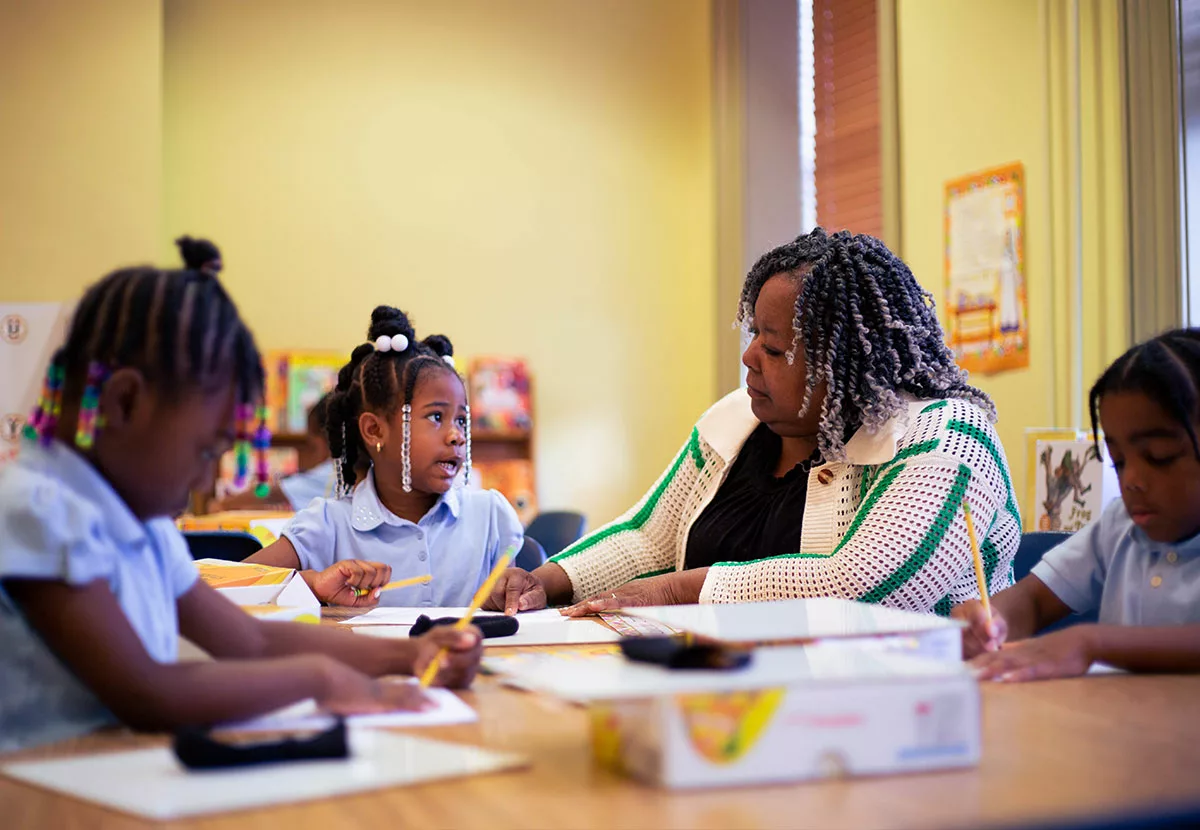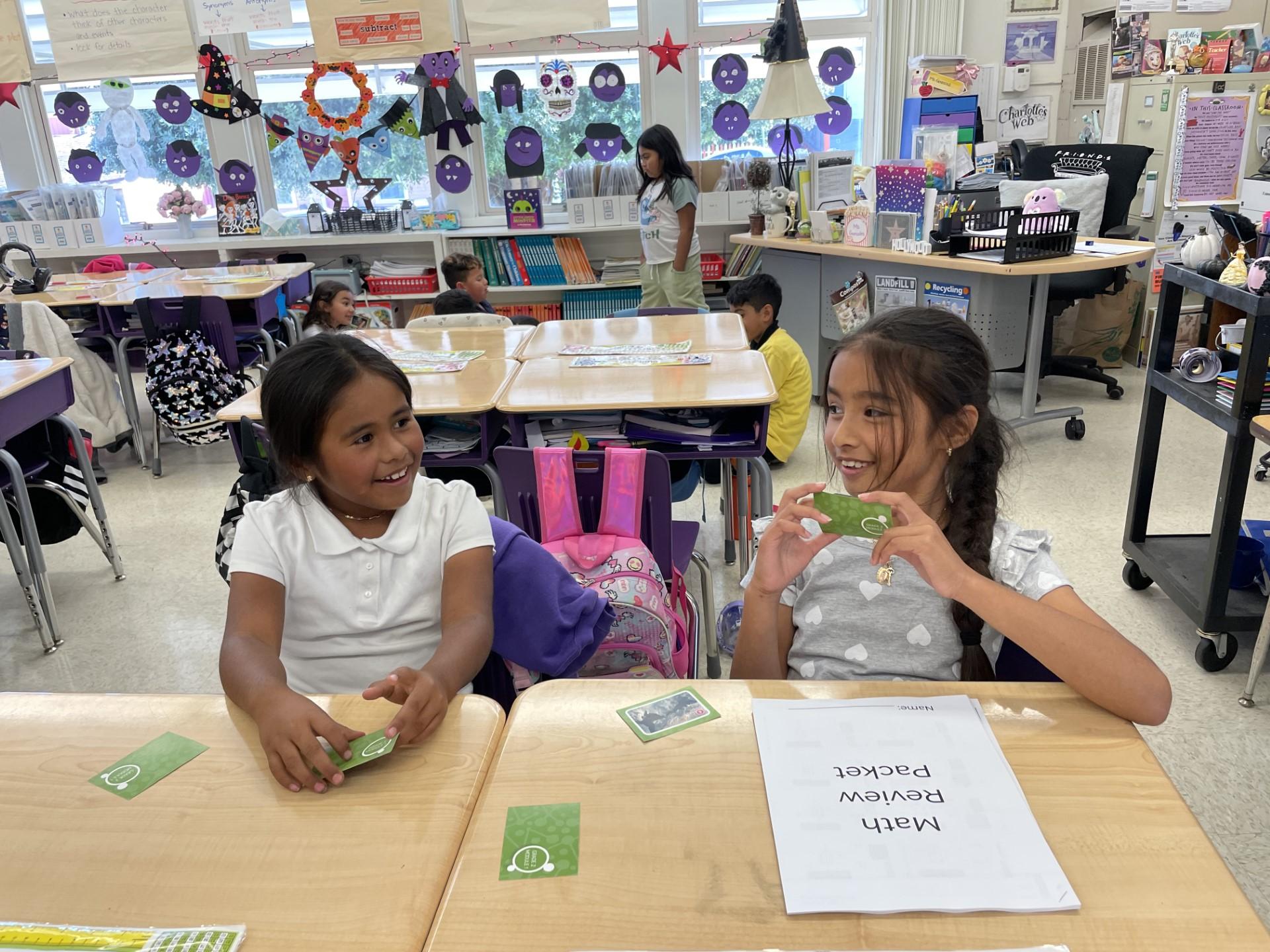Why Kindergarten is the Best Start to a Lifelong Learning Journey
Factors to Think About in Choosing Private Institution: Comprehending What Each Organization Has to Deal for Your Youngster's Growth
Picking a private school for a kid includes careful consideration of multiple variables. Parents should evaluate the academic educational program and training philosophies of various organizations. They should likewise check out extracurricular activities that might improve their youngster's experience. Additionally, recognizing the institution's culture and values is vital for alignment with family ideas. As financial implications play a significant duty, it is important to weigh tuition prices versus available scholarships. Just how do these aspects shape a youngster's development path?
Academic Curriculum and Training Approach
When selecting a private college, comprehending the academic curriculum and mentor approach is vital, as these elements substantially influence a kid's instructional experience. Moms and dads need to examine the college's approach to mentor and the subjects offered, as this can differ substantially amongst establishments. Some colleges might embrace a traditional educational program focused on core topics, while others might highlight project-based knowing or interdisciplinary studies.
Furthermore, the training viewpoint can form classroom characteristics and student interaction. Schools that prioritize a student-centered strategy usually foster important reasoning and collaboration, while those with a more structured atmosphere might concentrate on technique and foundational abilities.
Extracurricular Tasks and Enrichment Programs

Relevance of Diverse Activities
While scholastic quality is usually focused on in private schools, the importance of diverse tasks, including after-school activities and enrichment programs, can not be overstated. These tasks play a vital role in a child's all natural advancement, using possibilities for imagination, essential thinking, and teamwork. Participating in different quests allows trainees to discover their rate of interests, discover brand-new interests, and establish necessary life skills, such as time monitoring and self-discipline. In addition, diverse tasks can foster a feeling of belonging and community, improving the total institution experience. By taking part in clubs, sports, and imaginative endeavors, pupils not just enrich their education and learning yet likewise produce memorable experiences that add to their individual growth. As a result, varied activities are important to cultivating well-rounded individuals.
Effect On Social Skills
Exactly how do after-school activities and enrichment programs affect a youngster's social skills? These programs give crucial possibilities for children to communicate with peers outside of the typical class setup. Taking part in clubs, sporting activities, or arts fosters conflict, synergy, and communication resolution. Children discover to browse varied social environments, enhancing their capability to establish and create relationships compassion. In addition, taking part in numerous activities encourages confidence, as children take on brand-new difficulties and duties. As they team up on jobs or complete in groups, they likewise acquire beneficial experience in management and collaboration. Ultimately, a rich range of extracurricular offerings contributes substantially to a child's social development, preparing them for future interpersonal interactions in both personal and scholastic contexts.
Institution Society and Values
Comprehending the institution society and values is vital for parents reviewing personal education and learning alternatives, as these components substantially influence a child's overall experience. Each institution personifies special philosophies, practices, and social standards that form pupils' every day lives. A college that emphasizes inclusivity might foster a helpful setting, encouraging youngsters to establish empathy and regard for diverse histories. On the other hand, organizations that focus on academic excellence may create a competitive atmosphere, encouraging students to aim for high accomplishment.
The positioning of a college's values with a household's beliefs can enhance a kid's feeling of belonging, reinforcing positive behaviors and perspectives. Moms and dads need to explore the college's goal declaration, assess its corrective plans, and observe trainee interactions to assess the prevailing culture. Inevitably, a college's culture and values substantially impact not just scholastic success however likewise individual development, outfitting children with vital life skills for their future.
Course Dimension and Student-Teacher Proportion
Class size and student-teacher proportion play an important function in the academic experience used by independent schools. Smaller classes usually lead to enhanced individual attention, cultivating better student engagement and understanding. Research indicates that these factors can significantly influence learning outcomes, making them crucial factors to consider for parents.
Advantages of Smaller Classes
Smaller sized class dimensions considerably boost the instructional experience by cultivating extra tailored interest from instructors. In these environments, instructors can tailor their guideline to satisfy individual pupil requirements, enabling a deeper understanding of the material. With less students, educators can a lot more quickly determine those that may be struggling and give prompt support. This close interaction can grow stronger connections in between trainees and teachers, producing an encouraging atmosphere for learning. Additionally, smaller courses typically advertise greater involvement, as trainees might feel much more comfy voicing their thoughts and concerns. This dynamic motivates joint discovering and enhances total classroom involvement. Eventually, the advantages of smaller courses contribute extremely to a this content well-rounded instructional experience that focuses on pupil growth and development.
Influence On Discovering Outcomes
The advantages of smaller courses extend past individualized focus, considerably influencing finding out results. Research regularly reveals that a reduced student-teacher proportion promotes enhanced engagement, enabling instructors to customize direction to individual requirements. This setting urges active engagement, vital reasoning, and much deeper understanding of the material. In smaller setups, educators can extra properly determine and deal with learning voids, causing enhanced academic efficiency. Grade School Peoria. Additionally, pupils typically feel extra comfy expressing their ideas and asking my blog concerns, which can further enrich the understanding experience. On the other hand, larger course dimensions may limit communication and responses, possibly preventing trainee development. Therefore, when reviewing exclusive colleges, households ought to think about class size and student-teacher proportions as significant aspects impacting their youngster's educational success
Neighborhood Interaction and Parental Participation
Exactly how can area engagement and adult participation improve the educational experience secretive schools? These components play a vital duty in improving the discovering setting. When moms and dads actively join institution tasks, they foster a feeling of belonging and support among pupils. This involvement can take different types, such as volunteering for occasions, going to conferences, or joining boards, which not just strengthens the school community however additionally enhances communication between educators and families.
Community interaction expands this support by attaching the institution with neighborhood organizations, services, and cultural establishments (Grade School Peoria). Such partnerships supply trainees with one-of-a-kind understanding chances, including workshops and teaching fellowships, which add to their overall advancement. Furthermore, institutions that focus on these connections frequently produce her explanation a more inclusive ambience, allowing diverse viewpoints to be shared. Inevitably, community interaction and adult participation offer to produce a collective and helpful setting that contributes favorably to trainees' academic and social success
Financial Considerations and Scholarships
Maneuvering the financial landscape of private colleges can be a complicated process for households. Tuition prices differ considerably, commonly affected by elements such as location, centers, and the institution's reputation. Households must examine their economic scenario, considering not only tuition but additionally extra expenses like attires, costs, and extracurricular activities.
Lots of private colleges provide scholarship programs intended at drawing in varied trainee populations - Kindergarten. These scholarships can alleviate monetary problems and make quality education and learning obtainable to family members with differing earnings degrees. It is essential for parents to ask concerning the schedule of merit-based and need-based scholarships and understand the application procedures entailed
Additionally, some schools give flexible repayment plans that can alleviate prompt economic stress. By evaluating all financial aspects and checking out scholarship opportunities, families can make enlightened choices that line up with their educational goals and budgetary restraints.
Often Asked Inquiries
Just How Do Colleges Support Students With Understanding Disabilities?
Institutions support trainees with learning impairments via individualized education plans, specialized mentor approaches, and extra sources. They usually provide customized treatments, accessibility to sustain personnel, and comprehensive settings to foster academic and emotional development.
What Is the College's Approach to Self-control and Habits Administration?
The college's technique to discipline and actions monitoring stresses favorable reinforcement, clear expectations, and corrective methods. Team proactively involve trainees in conversations regarding behavior, promoting an encouraging setting that encourages personal responsibility and liability.
Just How Do Colleges Handle Student Shifts, Such as Relocating to Greater Grades?
Schools typically give structured support during student adjustments, including alignment programs, mentorship opportunities, and customized academic preparation. These actions intend to reduce anxiousness, advertise modification, and assurance pupils are prepared for the challenges of greater grades.
What Are the Institution's Plans on Modern technology Usage in the Classroom?

Just How Do Schools Evaluate Trainee Development and Give Feedback to Moms And Dads?
Schools evaluate trainee development via normal evaluations, including tests, projects, and classroom engagement. Feedback is provided to parents by means of report cards, parent-teacher meetings, and on the internet portals, guaranteeing constant interaction about each youngster's scholastic advancement.
